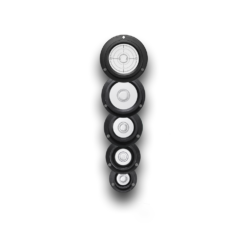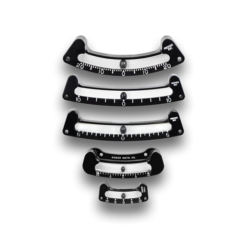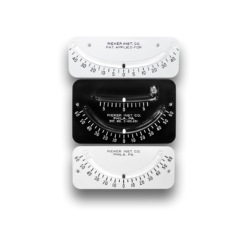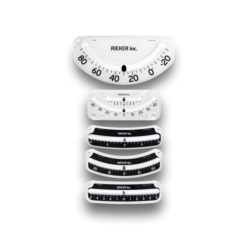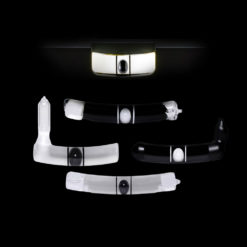Mechanical Inclinometers
Mechanical Inclinometers are precision instruments for measuring angles of slope and inclination of an object with respect to its gravity by creating an artificial horizon. It is also known as a Slope inclinometer, tilt sensor, tilt indicator, slope meter, slope gauge, slope measurement device, gradient meter, gradiometer, level gauge & level meter. A mechanical inclinometer (gravity-based sensor or a gyroscopic sensor) is commonly used in different industries like Aviation, civil engineering, construction, geology, surveying, Government, Marine, Military, and Transportation for platform leveling, load balancing, boom angle indication, and slope angle measurement. The tilt angle range is the range of desired linear output measured in degrees. Important specifications to consider when searching for tilt sensors and inclinometers are the tilt angle range and number of axes.
Rieker Mechanical Inclinometers Designed for All Environments
Rieker manufactures mechanical inclinometers using precision glass or polycarbonate tube and ball construction with engraved, silk-screened, or printed markings. Certain models are available with customer-specified color warning zones. All our tubes are filled with a special damping fluid that controls the movement of the ball. The fluid combined with large, clear numbers and degree markings makes it easy to get quick, accurate readings under a wide variety of severe environmental conditions. With a wide operating temperature range, UV resistance, and extreme shock and vibration resistance, these inclinometers are perfect for use in extreme environments.
For night-time operation, our Rieker mechanical inclinometers are available in backlit configurations as well. If you need a customized mechanical inclinometer, or custom-specified color warning zones please give us a call and one of our engineers will be happy to help.
FAQs About Rieker Slope Inclinometers and Mechanical Inclinometers
Here are some frequently asked questions about slope inclinometers and mechanical inclinometers:
What is a Mechanical Inclinometer?
In geotechnical engineering, slope inclinometers are precision instruments frequently used for slope stability monitoring, landslip detection, tunneling projects, and monitoring embankments, dams, and retaining walls.
How Does A Mechanical Inclinometer Work?
The mechanical inclinometer, otherwise known as a slope inclinometer, consists of a sensor or probe placed inside a casing installed in the ground or on a structure. As the ground or structure shifts, the probe detects angular changes and transmits data to a readout device, allowing engineers to monitor movement, stability, and potential slope failures over time.
How To Read A Mechanical Inclinometer?
To read a slope indicator inclinometer, place it on the surface you want to measure. The slope measuring tool’s digital display will indicate the tilt angle relative to the level ground. For mechanical inclinometers, read the position of the ball against the degree markings. For digital models, the screen will show the precise angle. Ensure the inclinometer is stable for accurate readings.
What are the Advantages of Mechanical Inclinometers?
Mechanical inclinometers are often preferred for their simplicity, durability, and reliability. They are usually resistant to environmental conditions such as temperature, humidity, and electromagnetic interference. Mechanical inclinometers are very simple to read and do not require power sources.
Can Mechanical Inclinometers be Installed Permanently?
Yes, mechanical inclinometers can be set permanently in a fixed position, especially when long-term slope or tilt monitoring is required. Once installed, they provide continuous angle measurement without the need for regular adjustments.
Can Slope Indicator Inclinometers Detect Gradual Slope Movements?
Yes, Slope measurement device can detect both slow and rapid slope variations.



